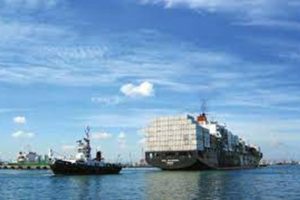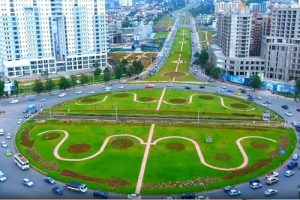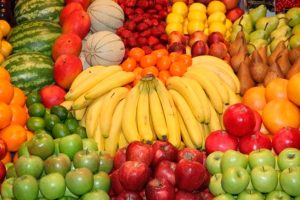
Among the ways to visualize contribution of agriculture to development is by measuring forward linkages with other sectors of the economy in the country. Forward linkages mean economic activity generated beyond the farm as products move along the supply chain to final consumers.
Over time, policies and incentives should be implemented to stimulate more value added activities so that the economic impact of every drop of coin generated at the farm level increases.
Asked about the contribution the agricultural has been making to economic growth, Shiferaw Mendida, an agro-economist graduated from Arba Minch University said agriculture is a key contributor to economic growth in many ways. He said, “A range of tributes can be cited like job creation, food security, generating higher incomes, which reflects strong agricultural sectors have higher per capita incomes, total factor productivity, as agriculture contributes to economic growth by positively impacting total factor productivity and global trade that has linked the nation with other nations via fostering planetary commerce.”
As to him, among the variety of means to boost agricultural output improving inputs, enhancing management techniques, expanding irrigation farming, and using technology and farm management practices have come to the forefront as these means are of paramount importance in increasing agricultural production and productivity.
He said, “A strong agricultural economy brings social progress by increasing productivity, employment and income. No doubt, agriculture is the main driver of development in most rural areas. As demand for staple foods, agricultural commodities has increasingly risen in developing countries like ours, the call for meeting these needs the agricultural and food sectors must be modernized and well reinvigorated.”
Shiferaw further stated that sustainable economic development brings social progress through the creation of jobs and income, as well as the integration of poverty groups, young people and the unemployed. Markets require public support and regulation, too. The economy is organized along value chains, because the point of reference for all economic activity is the products and the markets on which they are sold.
As to him, the purpose of establishing economic structures and increasing value creation in the nation is to come up with reliable development and ecologically sustainable as well as socially equitable forcefulness.
As far as Ethiopia is concerned, a range of institutions are working with all stakeholders to develop strategies for agricultural-based economic development. Agricultural-based economic development is to be understood as bridging the gap between market-oriented development and numerous development policy issues and goals, above all poverty reduction and gender justice, adaptation to climate change and ecological transformation of the economy, and the formation of structures for public action and participation.
According to him, the formats for agricultural-based economic development are correspondingly diverse: from the comprehensive promotion of certain sectors of the agricultural economy to measures in specific areas, such as cooperation among farmers, contract farming, agricultural financing or laws and standards. Every approach and every measure must take into account the overall framework and all parts of the value chain, in fact.
The position of agriculture within the economy seems more important in Ethiopia so and less important in developed countries. The contribution of agriculture in food, raw materials, and financial surplus including foreign exchange to invest is essential for the process of industrialization, for which the country has been long aspiring.
“The transition from a traditional agrarian economy to an industrialized economy is a dynamic process that inevitably involves complex interactions among many economic as well as social factors. The role of agriculture in the transitional process varies conditioned by factor endowment, institutional arrangements, cultural background, historical factors, policy choices, etc.,” he underscored.
Yes, he added, one can identify several important roles played by agriculture in the transition process, and agriculture generates markets for industrial products, especially light industrial products which have ready markets in the agricultural sector.
He further stated that the sector provides food and raw materials for industrial processing, builds adequate food supplies which are a crucial factor in sustaining price stability, provides exports to earn foreign exchange, supplies the non-agricultural sector with capital and labor through the gradual accumulation of entrepreneurship and marketing capabilities in the agricultural sector as well as eases the process of industrialization.
True, the agricultural sector supports industrialization by providing a source of labor, capital and raw materials to the nonagricultural sectors and by generating demand for industrial products. The relationship between agriculture and industry may be one of interdependence and complementary, too. For example, while providing inputs to industry, agriculture receives from industry modern farm inputs, advanced technologies, and consumption goods to increase agricultural productivity.
As the natural resource base on which agriculture depends is poor and deteriorating, productivity growth is therefore increasingly more difficult to achieve. Hence, focusing on the sector is the best remedy to come up with lasting solutions thereby promoting production.
Recognizing and correctly valuing the performance, critical importance and increasing role of agriculture in economic development have important implications for public sector budgetary allocations and actual expenditures in agriculture, which continue to be low and inadequate, he added.
Economic development and pro-poor growth should receive due emphasis, of course as economic growth can pettily lead to poverty reduction. As farmers struggle with low productivity and high subsistence needs, low input use, low incomes, poor infrastructure, high risks, and the like, the amount of profit to be made in market chains for food staples remains low and unattractive for much private investment. However, as to Shiferaw, if agriculture is given due attention, it would definitely contribute to environmental services such as soil conservation, watershed services, biodiversity, and carbon sequestration; poverty reduction apart from ensuring food security.
Generally, a number of ways have to be employed to help the agriculture sector grow. To mention but a few: smart water management; reduce water usage in agriculture by using smart water management practices; boost irrigation, which refers to develop irrigation to increase food production; reduce dependency on rain-fed agriculture, and improve household incomes. As to him, as expanding irrigation farming can help boost agricultural output, the Ethiopian government has a plan to replace wheat imports with local production by using irrigated farming techniques.
He said, “Agriculture remains a critical part of Ethiopia’s economy, accounting for 40% of the Gross Domestic Product (GDP), 80% of exports, and an estimated 75% of the country’s workforce. Sector’s productivity remains low due to limited private investment, fragmented markets, environmental degradation, and recurrent shocks. These challenges need to be well addressed for the betterment of the sector.”
He further stated that the country has to foster private enterprise development in the food and agriculture system in order to increase employment, income, and access to healthy diets. True, he said, increasing access for small and medium-sized agri-food enterprises and smallholder farmers to business development services including finance, selected seed, improved technologies, mechanization, marketing, and the digital economy are quite important in this regard.
Generally, the agriculture sector has to be given due emphasis as it has long been the basis of economic growth and economic sovereignty though a lot remains to be done along this line. Endowed with a range of arable land, irrigable potential, abundantly available water source, it is quite unfair to talk about food insecurity in Ethiopia.
The agricultural production systems in the country have to be made well mechanized to help the sector grow better. Sector’s contribution to the economic growth in general and poverty eradication in particular has to be credited and all possible efforts need to be exerted to put the sector in a good position.
Job creation, food security, national income generation are resulted from strong agricultural sector coupled with viable economic growth are immensely attributable to national change. Hence, these moves are expected to be well nurtured and taken care of for they are paramount importance in fostering economic sovereignty. Ethiopia has to pursue the right track it has been trekking so far.
BY MENGESHA AMARE
THE ETHIOPIAN HERALD WEDNESDAY 13 NOVEMBER 2024





